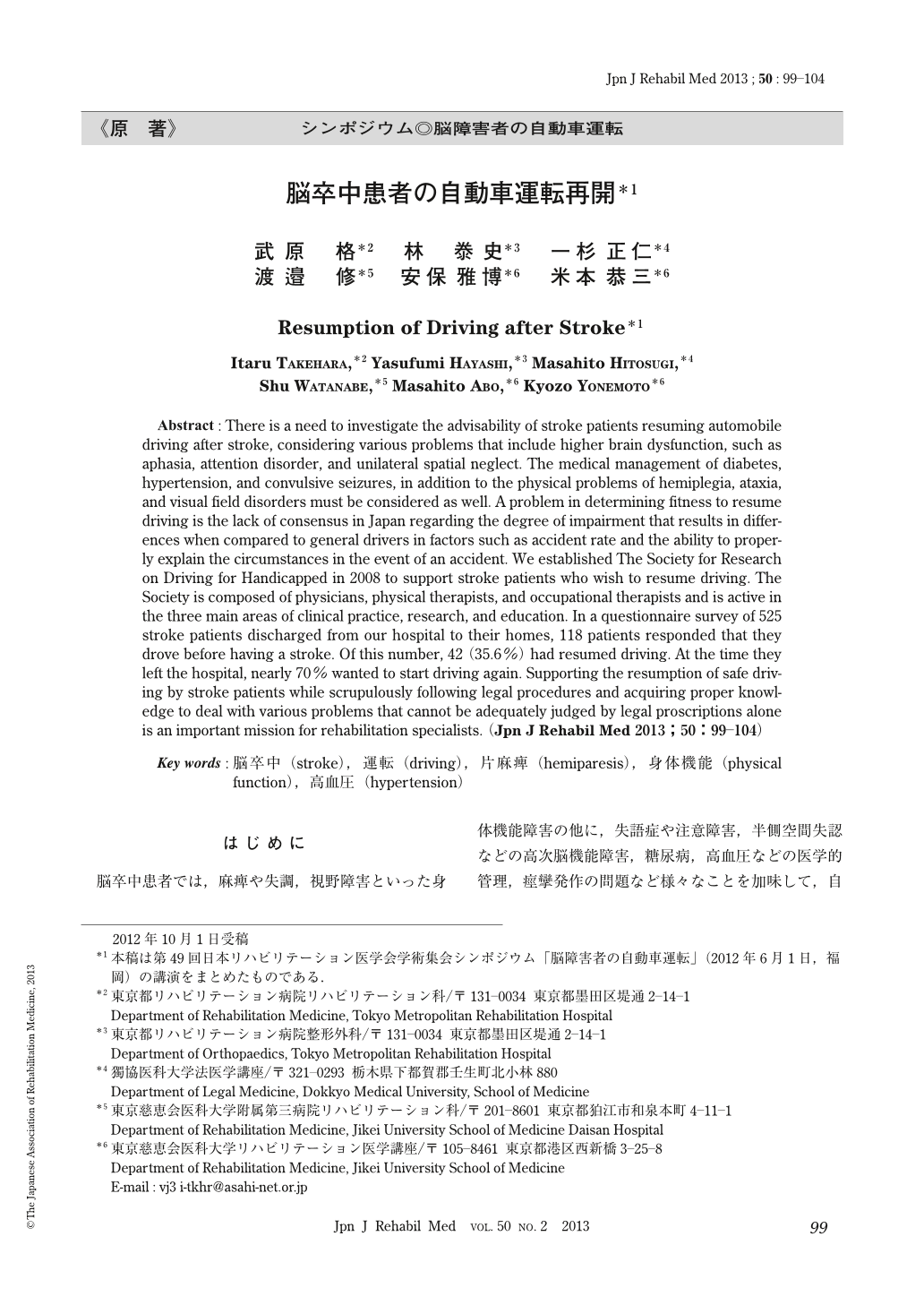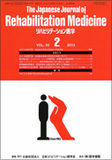Japanese
English
- 販売していません
- Abstract 文献概要
- 1ページ目 Look Inside
- 参考文献 Reference
はじめに
脳卒中患者では,麻痺や失調,視野障害といった身体機能障害の他に,失語症や注意障害,半側空間失認などの高次脳機能障害,糖尿病,高血圧などの医学的管理,痙攣発作の問題など様々なことを加味して,自動車運転再開の可否を検討する必要がある.運転再開を検討する際問題となるのは,どの程度の障害までなら一般ドライバーと事故率に差がないのか,または事故を起こしたときに適切に状況説明ができるのかなど海外においては様々な報告1~4)がされているが,日本において一般的な見解はないことである.明らかに運転を再開することが危険な場合は運転再開を許可すべきではないが,運転再開が可能と思われる場合は安全性を考慮し,運転再開を積極的に支援すべきと考える.
本稿では,脳卒中患者の自動車運転再開までの流れと注意点,我々が行った調査結果と現在の活動について報告する.
Abstract : There is a need to investigate the advisability of stroke patients resuming automobile driving after stroke, considering various problems that include higher brain dysfunction, such as aphasia, attention disorder, and unilateral spatial neglect. The medical management of diabetes, hypertension, and convulsive seizures, in addition to the physical problems of hemiplegia, ataxia, and visual field disorders must be considered as well. A problem in determining fitness to resume driving is the lack of consensus in Japan regarding the degree of impairment that results in differences when compared to general drivers in factors such as accident rate and the ability to properly explain the circumstances in the event of an accident. We established The Society for Research on Driving for Handicapped in 2008 to support stroke patients who wish to resume driving. The Society is composed of physicians, physical therapists, and occupational therapists and is active in the three main areas of clinical practice, research, and education. In a questionnaire survey of 525 stroke patients discharged from our hospital to their homes, 118 patients responded that they drove before having a stroke. Of this number, 42 (35.6%) had resumed driving. At the time they left the hospital, nearly 70% wanted to start driving again. Supporting the resumption of safe driving by stroke patients while scrupulously following legal procedures and acquiring proper knowledge to deal with various problems that cannot be adequately judged by legal proscriptions alone is an important mission for rehabilitation specialists.

Copyright © 2013, The Japanese Association of Rehabilitation Medicine. All rights reserved.


